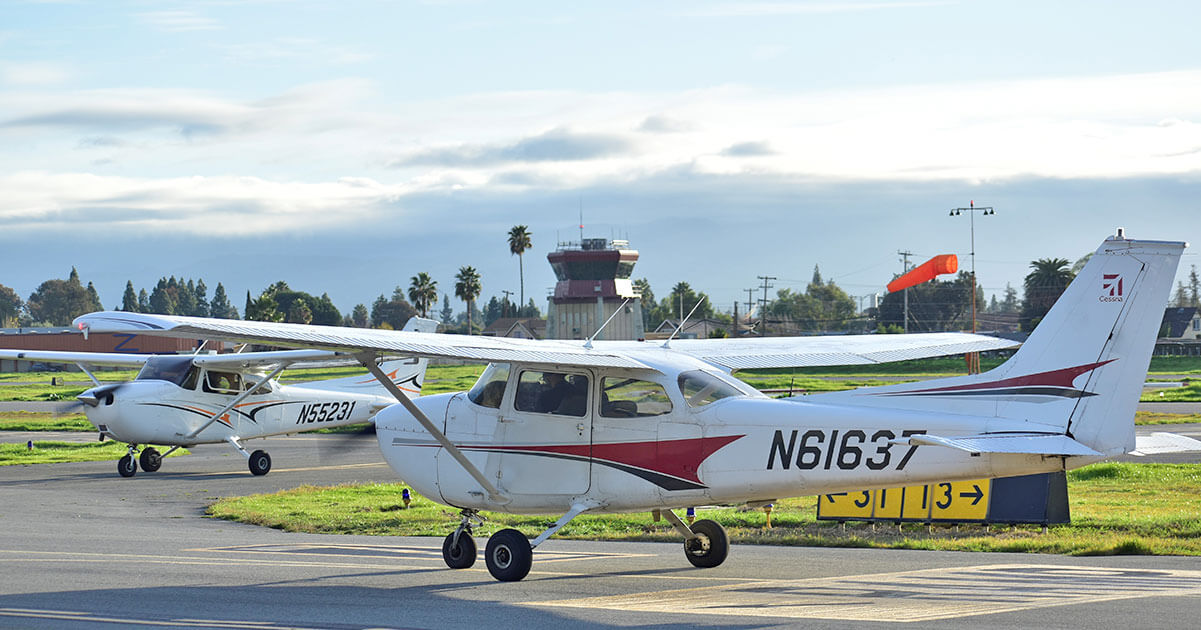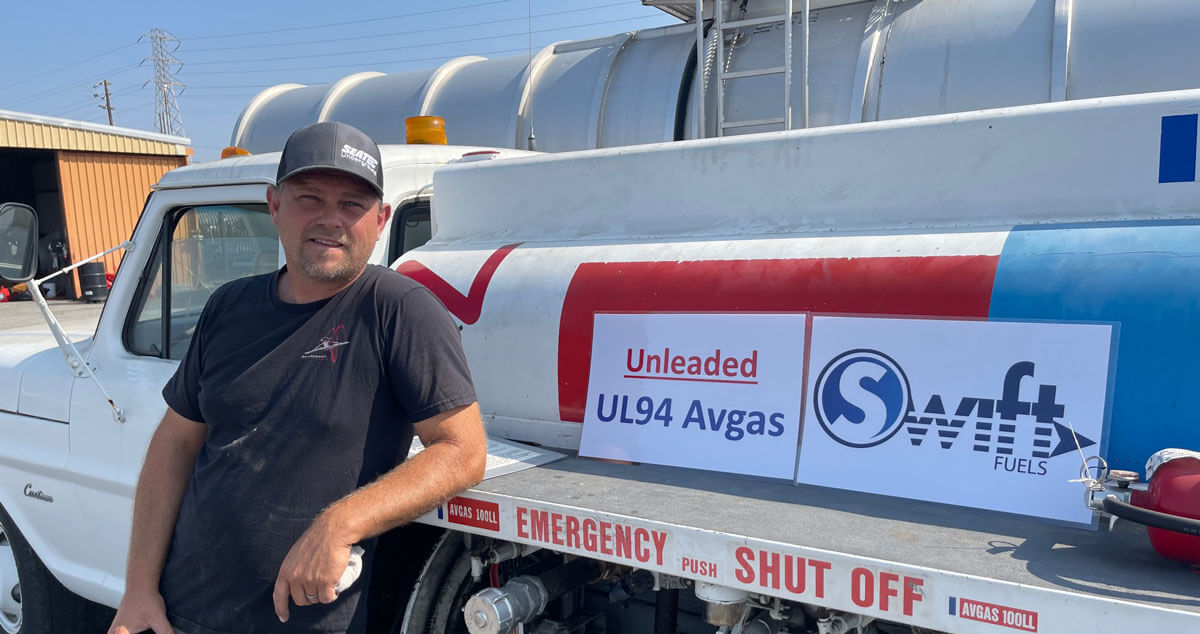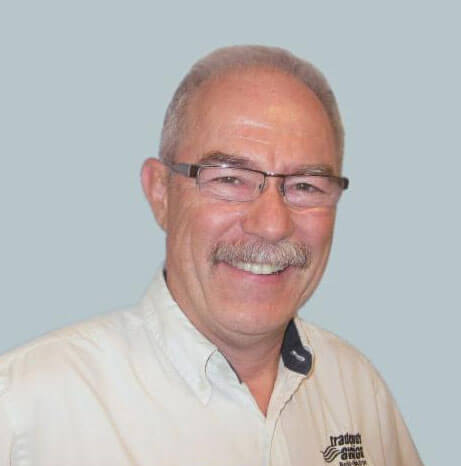
Photo Courtesy of Brandon Cheung
Feb. 18, 2022
The recent ban on the sale of 100 octane low lead aviation fuel (100LL) at Reid-Hillview County Airport (RHV) and San Martin Airport (E16) has generated major impacts to airport businesses and aircraft operators.
The county’s failure to appreciate the complexities of the aviation industry also is impacting owner-pilots like David Goodin, vice president of business development at a high-tech company, who bases a Cessna 310 at RHV.

“This would be so much easier to embrace the changes imposed by the county if we had a semblance of long-term planning, but it is clear the county is just slowly starving the airport,” he said. “There is no fleet-wide solution or even the acknowledgment that a large portion of the general aviation aircraft fleet is being cut off. It is unacceptable, and this mistreatment is one of the reasons why I will be moving my aircraft and my operation out of California.”
The two general aviation airports are operated by Santa Clara County, CA and are located in the vibrant Silicon Valley region of California. In December 2018, the county voted to stop accepting federal funds for Reid-Hillview, with the goal to run out the clock on its existing grant obligations and threatening it with closure after 2031.
Home to flight schools, small businesses and a number of family-owned FBOs that rely on piston aircraft – many of which can only be fueled with 100LL – the airport has struggled through the uncertainty triggered by this change. Moreover, after the majority of leases expired at the end of 2021, the county refused to renew them for a period longer than one year, even forcing some tenants to accept month-to-month terms.
As an additional blow, in August 2021, citing a county-commissioned study that raised concerns about lead levels in communities surrounding Reid-Hillview Airport despite a lack of clear attribution to the airport, county officials issued a ban on the sale of 100LL and stated its intent to become the sole distributor of all fuel, including JetA, starting on Jan. 1, 2022.
The county’s premature removal of 100LL before a fleet-wide replacement becomes available has been roundly condemned by NBAA and other general aviation groups, and among other violations, prompted the FAA to initiate a Part 13 investigation.

Josh Watson, owner of AeroDynamic Aviation
Earlier in 2021, through the unheralded actions of the local aviation community, airport tenants overcame numerous challenges to proactively bring unleaded aviation fuel to RHV. Developed by Swift Fuels, UL94 is compatible with many (but not all) piston aircraft. “After talking with other operators at Reid-Hillview, I decided to take the initiative and source UL94,” explained Josh Watson, owner of AeroDynamic Aviation, a flight school built by a member of the Reid family that founded the airport.
“The core problem is that the UL94 market is simply not ready to supply to our area. I eventually found a source in Indiana, but the supply chain to serve us here in California is very unstable, and it requires major logistical and managerial efforts,” he said. “In the beginning, it was taking six days to truck in the fuel, and that meant sending an empty truck back all that way. The lead time for fuel ordering also went up from two days with 100LL to three weeks with UL94.”

“We want to be clear, the aviation community in Santa Clara County is not opposed to unleaded fuel. Quite the opposite. We are committed to making aviation fuel cleaner and more sustainable,” said Walter Gyger, president, CEO and owner of Trade Winds Aviation, a flight school that operates a fleet of Cessna aircraft at Reid-Hillview and San Martin.
As the January deadline to remove 100LL from the airport drew near, the county recognized that it would not have the infrastructure and staffing in place in time and announced that it would now assume fueling operations only starting July 1, 2022. If not for the actions taken by AeroDynamic Aviation, Reid-Hillview would be left without any aviation gasoline.
“The decision to ban 100LL is reckless, and now we are in a situation where students from the aviation program at San Jose State University can’t learn to fly at RHV because they can’t fuel their aircraft here,” Watson emphasized.
The county’s actions have also forced one FBO, LP-Enterprises, to shutter. The company simply could not survive without the revenues it relied on from the sale of 100LL.
“The reality of the situation is quite different from the view held by local officials,” noted Gyger. “It is not realistic to demand only unleaded fuel. My concern is that the 100LL ban, coupled with the county’s intransigence on renewing leases on airport properties, are not isolated issues but part of a broader strategy to force the closure of Reid-Hillview Airport.”


 International Business Aviation Council Ltd.
International Business Aviation Council Ltd.